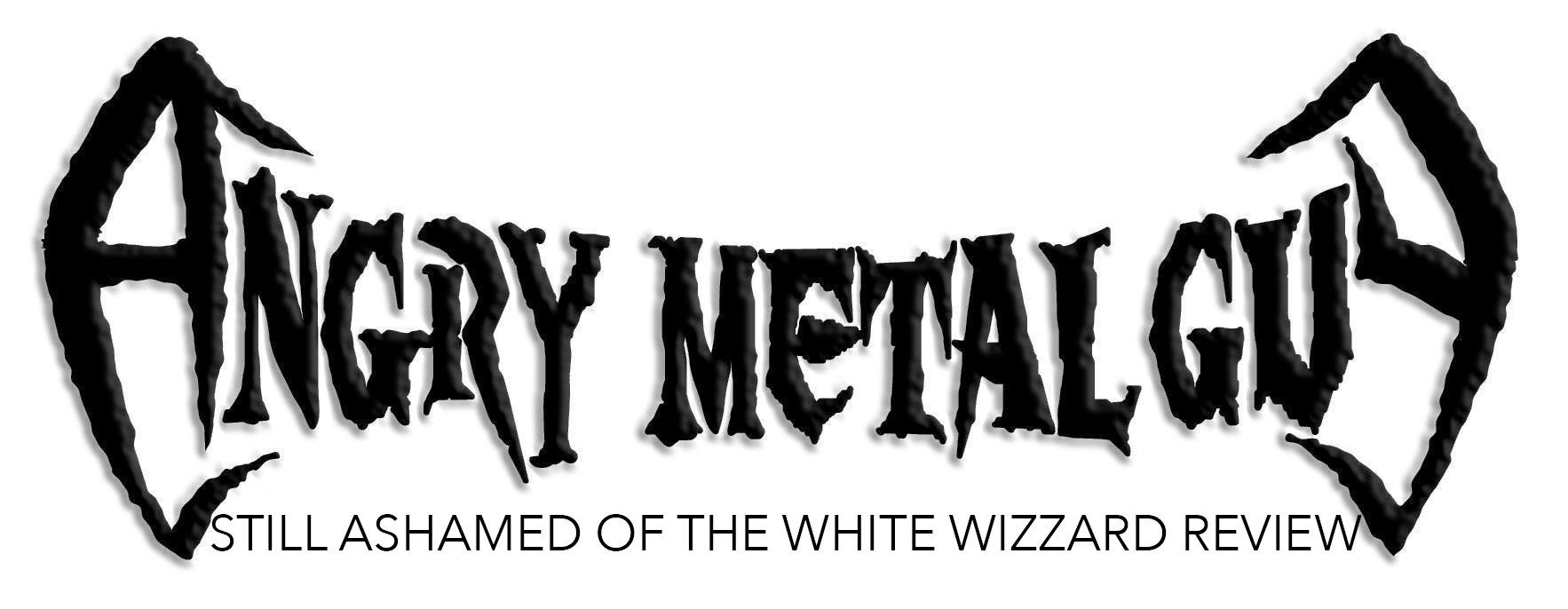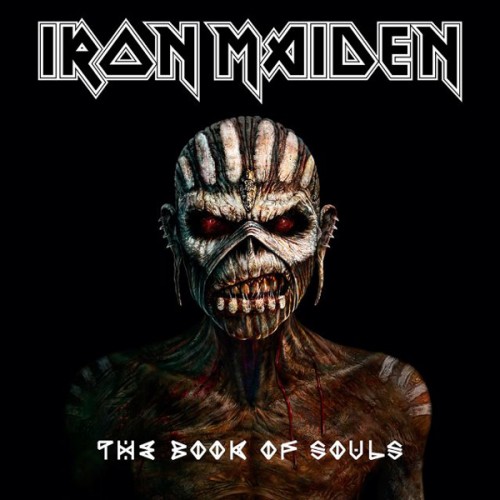 On October 5th, 1930 while flying over France on its maiden voyage, the airship R101 crashed, killing 48 of the 54 people on board. The ship was the jewel of the British empire and had been built with increased lifting capacity, and was (at the time) the world’s largest flying vessel. Much like the Titanic, the R101 is a story of hubris—particularly as told by Dickinson on the track “Empire of the Clouds,” The Book of Souls’ 18-minute closer. The R101 never was put through its paces, having not done full endurance and speed trials, before it undertook its maiden voyage for India, and on that voyage it tragically crashed. As a closer, “The Empire of the Clouds” is an epic which pushes Iron Maiden into territory never before explored. As an analogy for The Book of Souls, it strikes a little too close to home.
On October 5th, 1930 while flying over France on its maiden voyage, the airship R101 crashed, killing 48 of the 54 people on board. The ship was the jewel of the British empire and had been built with increased lifting capacity, and was (at the time) the world’s largest flying vessel. Much like the Titanic, the R101 is a story of hubris—particularly as told by Dickinson on the track “Empire of the Clouds,” The Book of Souls’ 18-minute closer. The R101 never was put through its paces, having not done full endurance and speed trials, before it undertook its maiden voyage for India, and on that voyage it tragically crashed. As a closer, “The Empire of the Clouds” is an epic which pushes Iron Maiden into territory never before explored. As an analogy for The Book of Souls, it strikes a little too close to home.
At 93 minutes, The Book of Souls is the longest album the venerable deities of heavy metal have ever produced. Two CDs of music, 50 and 43 minutes respectively, were composed and arranged when the band came together to produce the new record. In the French studio the band used for Brave New World all the songs were written, arranged, learned and recorded, which gives the album a live and raw sound—made more so by the fact that the record was recorded with a live feel and lots of single takes. Close listens reveal missed pick strokes and rhythmic variations unusual on professional releases. This leads to a sound that isn’t polished like Brave New World or Dance of Death, but continues the trend started on A Matter of Life and Death and The Final Frontier. This tone and approach has been pretty roundly criticized by a lot of fans, but it’s a sound that works; the live feel has a spontaneity and confidence to it that only a band like Maiden could feel. Unlike A Matter of Life or Death, though, The Book of Souls borders on the the realms of over-mastering (DR 8 on my CD version), which given the number of moving parts is a missed opportunity, especially given how rangy this material is. Regardless, The Book of Souls sports considerable heft, there’s pretty good balance between the instruments, and the drums still pop.
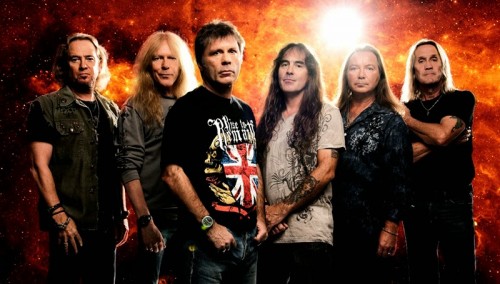
Despite a good sound and great feel, The Book of Souls is, politely, over-leveraged. The shortest song on the entire album is “Tears of a Clown,” which clocks in at 4:59. But songs pushing 7, 8 or 10 minutes aren’t uncommon and repeated deep listens don’t justify these lengths. “The Red and the Black” is a classic Harris epic that clocks in at 13:33, and I like it; but you could shave 4 or 5 minutes off the song easily simply by removing musical non sequiturs and unnecessary repetition. The song peaks 10 minutes in, rocking an absolutely epic lead and solo that evokes Seventh Son of a Seventh Son; but it would be more effective if it had been trimmed to 8 minutes instead. The title track “The Book of Souls” is a Gers and Harris piece, and likely my favorite song on the album, but it still could lose two minutes on acoustic brackets at the front and back. Even on shorter songs, bridges and repetitions could be tightened getting at the focus of the track, making them more effective and immediate.
Sonically, the vocals are done with the same stripped down feel as its predecessor. Very few harmonies, meager after-effects, and a lot of vocal lines that sound like they were done with Bruce running around on stage settings characterize the vocal approach on this album. This is probably best demonstrated by the first single “Speed of Light,” where Dickinson starts off with a “Be Quick or Be Dead” wail and scoops into the high note in the chorus. But it stood out to me with every listen, Bruce’s top range sounds forced at times and both the vocal takes and some of the melodies sound like they were finished on the first take—regardless of whether or not they were.
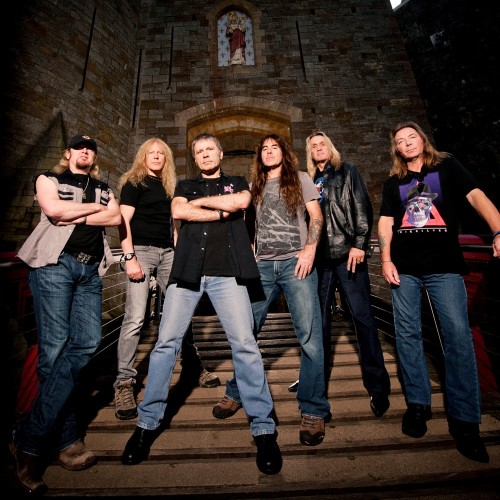 More concerning is that some of the melodies and lyrics on this record are pretty tough to love. The section after about two minutes in “The Man of Sorrow” is practically unlistenable and would have been better on the cutting room floor. The verse melody in “Death or Glory” is weak, as is the bridge in “When the River Runs Deep”—and they both give off the impression of being dashed together, not having taken time to really develop the melodies as far as they could have used. “Tears of a Clown” and “When the River Runs Deep” both have end-rhyme laden lyrics that are tough to listen to, reminiscent of my least favorite aspects of H’s Somewhere in Time compositions. These songs definitely have their moments, and it’s not all bad, of course. Bruce sounds absolutely great at other times, nailing “Empire of the Clouds,” “Shadows of the Valley” and “The Book of Souls.” The former is written entirely by him and the latter two are written by Janick Gers primarily, and they all sport great melodies that Dickinson nails. His vocals in “The Red and the Black” are a highlight, but I was actually really shocked to hear that the Smith/Dickinson pairings lack the punch of earlier records.
More concerning is that some of the melodies and lyrics on this record are pretty tough to love. The section after about two minutes in “The Man of Sorrow” is practically unlistenable and would have been better on the cutting room floor. The verse melody in “Death or Glory” is weak, as is the bridge in “When the River Runs Deep”—and they both give off the impression of being dashed together, not having taken time to really develop the melodies as far as they could have used. “Tears of a Clown” and “When the River Runs Deep” both have end-rhyme laden lyrics that are tough to listen to, reminiscent of my least favorite aspects of H’s Somewhere in Time compositions. These songs definitely have their moments, and it’s not all bad, of course. Bruce sounds absolutely great at other times, nailing “Empire of the Clouds,” “Shadows of the Valley” and “The Book of Souls.” The former is written entirely by him and the latter two are written by Janick Gers primarily, and they all sport great melodies that Dickinson nails. His vocals in “The Red and the Black” are a highlight, but I was actually really shocked to hear that the Smith/Dickinson pairings lack the punch of earlier records.
The most difficult part of The Book of Souls is that there are moments of sheer ecstasy that show off what the band has always done well—and what they have done well in their reunion period. From these 93 minutes, an excellent 75 minute record exists.1 From about 6 minutes on “Book of Souls” is anthemic and beautiful, with guitar harmonies and a driving feel that set my heart ablaze. The section that features the title lyrics to “The Red and the Black” (“The red and the black / People don’t want the truth”) is transcendent, with Bruce’s voice sounding as vital as ever; and this gives way to an excellent melodic section and memorable solos. The chorus for “Shadows of the Valley” and the proggy solo on the back end are among my favorite moments on the record, I especially love Janick’s noodly interludes and the way the three guitars actually get used here. The outro of “Empire of the Clouds” is gorgeous and my heart swells when I listen to it. The guitar work throughout the album is great across the board, with all three guitarists knocking out great solos and memorable melodies. All of this is audible on every song on the album, there are moments which can be pulled out and you can put your finger on where you say: “There! That’s it, right there!”
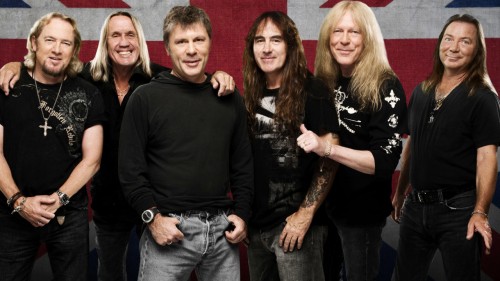
What this does for the listener, then, is turn The Book of Souls into an album that is better listened to as background music. The moments of brilliance get you to peak up, rock out, and think “Aw yeah, they still got it.” But when forced to listen to the record in headphones in my Angry Metal Cubicle so as to not break the NDA for the promotional copy of the album, I was focused on the music with hawk-like attention. In these deep listens the unruly weight of the album became clear; minutes stretched by of riffs repeating or reappearing without filling a function. Even on the 18 minute epic, “The Empire of the Clouds,” which is an all around brilliant track, there are swaths of composition that lumber out of the speakers directionless, only to be forgotten, never having moved the grand narrative of the song forward. With these different moments distilled, getting at the very best moments, The Book of Souls would have soared through the beautiful blue skies of greatness. Instead, like an overloaded, structurally unsound airship, The Book of Souls set sail as is.
The Book of Souls is disappointing, yes, but more so it’s frustrating. While I agree with the raves that the band sounds great and I find myself loving moments, nodding my head or having melodies stuck in my head, I disagree with the idea that this is a good album. I can listen to it straight through to “Tears of a Clown,” at which point I started to skip to “Empire of the Clouds” after my dozenth listen or so. No, The Book of Souls is a spotty record with brilliant moments. But as much as it pains me,2 great ideas—unformed and unedited—do not a brilliant record make. Instead, the record feels front-heavy—the old “weak b-side” problem of the ’80s rearing its head in the most surreal of ways. But who knows, It’s possible that The Book of Souls develops with a longer listening period than the 3 weeks of intense time I’ve had with it. It’s possible that, like its predecessor, I develop a strategy for listening to it and start to appreciate it more than I do today. But today? The Book of Souls offers up excellent ideas, but never molds them into something greater than its parts.
Rating: 2.5/5.0 – Great moments, not a good album
DR: 8 | Format reviewed: Stream and official CD release
Label: BMG / Parlophone
Websites: ironmaiden.com | facebook.com/ironmaiden
Released Worldwide: September 4th, 2015
